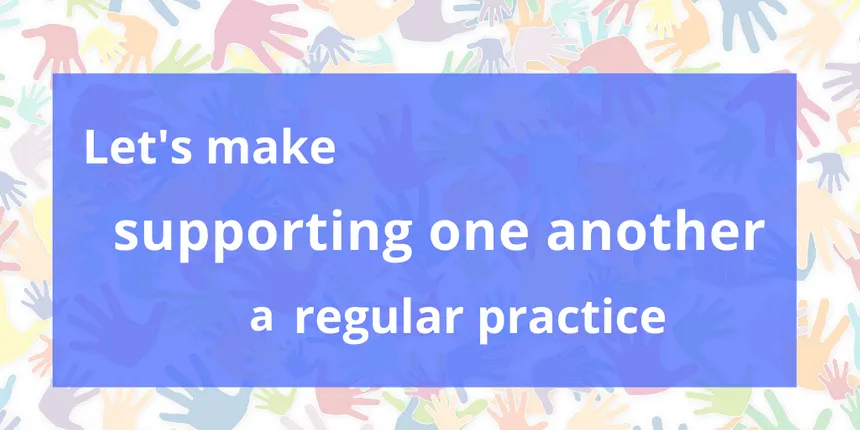Let’s Make Supporting One Another a Regular Practice

Originally published by Leigh Kendall – 21st May 2020
Well-intended social media posts implore people experiencing problems with their mental health to reach out to their friends for support.
What these posts fail to realise is that when you’re struggling with mental ill health, reaching out to your friends can feel impossible.
I live with post-traumatic stress disorder (PTSD) which results in symptoms of depression and anxiety. When these symptoms are especially bad, I can feel utterly convinced that I am a bad person and that everyone hates me. Reaching out to others therefore would not occur to me.
Friends reaching out to me, however, helps immensely. Noticing I’ve not been as active as usual on my social media feeds and sending a little note to check I’m ok means the world and helps bring a little chink of light in to the darkness.
The Covid-19 pandemic has for many living with mental ill health intensified their symptoms. People who haven’t experienced mental ill health before have understandably been having difficulties, too.
Not only is there fear and uncertainty about the pandemic, there is separation from family and friends due to social distancing measures, and the temporary loss of many of the social activities we perhaps used to take for granted.
In addition, many people are getting used to working at home. For people used to working in a busy office surrounded by colleagues working at home can feel isolating.
People working in health and care may be so used to caring for others they can forget that they need to care for themselves too.
During the weekly #Caring4NHSPeople wellbeing webinars, Dr Sonya Wallbank reminds people to regularly check in with their colleagues. To take the time to notice changes in behaviour and signs of distress, and ask “are you really ok?” – we all know we’ve responded with a polite “I’m fine!” when we’re not – and listen, really listen to the response without judgement.
Also make sure you check in with colleagues who are shielding – people remaining at home due to being clinically extremely vulnerable to Covid. As Sonya reminded us, health and care colleagues who are shielding may additionally experience a sense of guilt of being away from the ‘front line’.
During yesterday’s wellbeing webinar, Dr Nick Grey highlighted the need for social support – from family and friends, as well as from your organisation – to be actively encouraged.
I’m fortunate to usually work at home, as are many of my colleagues. We’ve got systems in place to regularly check in with one another to help make sure no one feels isolated such as WhatsApp for both work-related and more light-hearted chat, as well as Zoom video calls and the good old-fashioned phone.
For colleagues in the NHS and our partner organisations, there is also a wealth of support available on the People website via free apps, support lines, and virtual common rooms.
This week is Mental Health Awareness week; the theme is kindness – to ourselves, and to one another. Let’s continue the practice of looking out for one another – not just during the awareness week, or during these challenging times, but all the time.
Further information
Find out more about the #Caring4NHSPeople wellbeing webinars.
Find out about the wellbeing support available to health and care staff.
TWEETS ON THIS SUBJECT
